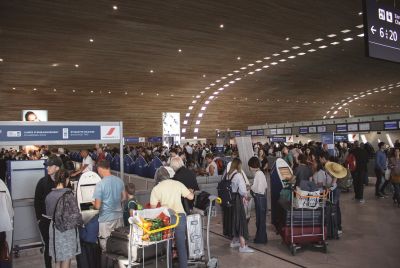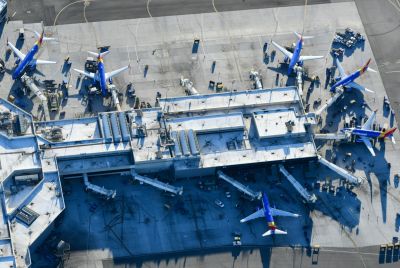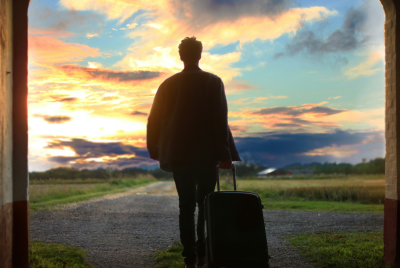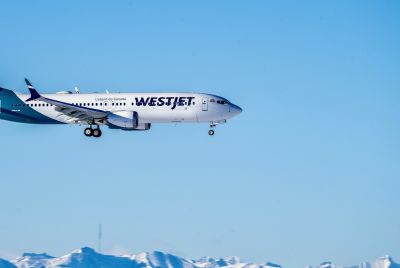Canadians Say 'Adiós' to America As Travel To Mexico and Other Tropical Destinations Surge
Several countries around the world have warned their citizens against travelling to the US
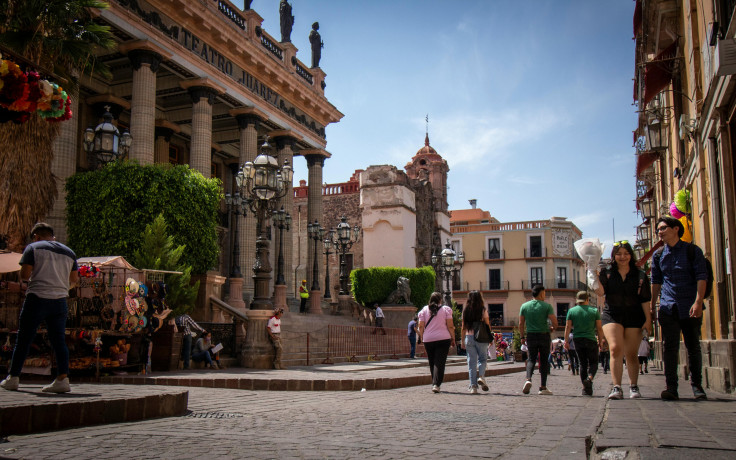
The once-bustling border crossings between Canada and the United States sit unusually quiet these days. Where families once queued in cars laden with luggage and coolers, many are now heading in different directions—toward Mexican beaches and European capitals.
Canadians are increasingly choosing destinations outside the US, with several travel companies reporting a noticeable dip in American-bound tourism during the first 100 days of Donald Trump's second presidential term.
The decline began subtly but has accelerated following a string of provocative statements from President Trump, including a particularly eyebrow-raising remark about annexing Canada as 'the 51st state'. While such comments might have previously been dismissed as political theatre, they have struck a nerve with many Canadians.
Trump had previously made disparaging remarks about Canada, even threatening to absorb the country into the United States. Those sentiments appear to have left a lasting impression, pushing many Canadians to view Mexico as a more appealing and respectful travel option.
Trump's Rhetoric and Tariffs Sour US-Canada Travel Relations
Canadians' changing travel plans are not just emotional reactions—they are also driven by policy. Among the first major moves of Trump's second term was the imposition of a 25% tariff on imports from Canada and Mexico, igniting what many have described as a renewed trade war with key allies.
This has further soured public perception of the United States among Canadians, who now associate travel south of the border with broader political and economic hostilities.
Adding to the unease is the growing number of reports highlighting mass deportations and intensified interrogations of legal residents at US borders—incidents that have been widely shared across Canadian media.
In response, Trump administration press secretary Karoline Leavitt stated: 'I think most recognise that the U.S. is a great place to do business, a beautiful place to visit, and they should come here because it is a much safer country than four years ago under the previous president.'
Mexico and Europe Rise as Preferred Alternatives
In an interview with USA Today Travel, Canadian traveller Don Delayen explained why he and his family swapped their California plans for Puerto Vallarta, Mexico. 'The tariffs are one thing, but basically it was Trump's derogatory talk towards Canada that lit the torch,' Delayen said.
According to Statistics Canada, the number of Canadians travelling by car to the US fell by 32% in March alone. Air travel saw a decline of approximately 13.5%. Even California Governor Gavin Newsom, one of Trump's political rivals, has launched a tourism campaign targeting Canadians, stating that he leads 'a welcoming state'.
Billions at Stake as US Travel Industry Feels the Impact
The economic ramifications of this shift are already becoming apparent. Hilton CEO Christopher Nassetta noted that a 30% drop in Canadian visitors could cost the US travel sector around $6 billion and threaten an estimated 420,000 jobs linked to tourism and hospitality.
Travel booking platforms are reporting similar trends. Booking Holdings—parent company of Booking.com, Priceline, and Kayak—confirmed a significant decline in Canadian traffic. 'We saw a moderation in trends for inbound travel into the US, particularly from bookers in Canada,' said CFO Ewout Lucien Steenbergen. 'However, we also saw an improvement in trends in other travel corridors, for example, from Canada to Mexico.'
A survey of 1,000 Canadians who had previously travelled to the US found that 96% had either cancelled a pre-planned trip or decided not to book one at all due to what they perceived as a worsening political climate.
For many Canadians, the decision to avoid the US transcends economic considerations. With summer on the horizon, sun-seekers are trading California theme parks for Cancun resorts. Whether this shift proves temporary or marks a long-term realignment in North American travel remains to be seen—but it is clear that, for now, the political has become deeply personal.
© Copyright IBTimes 2025. All rights reserved.

















